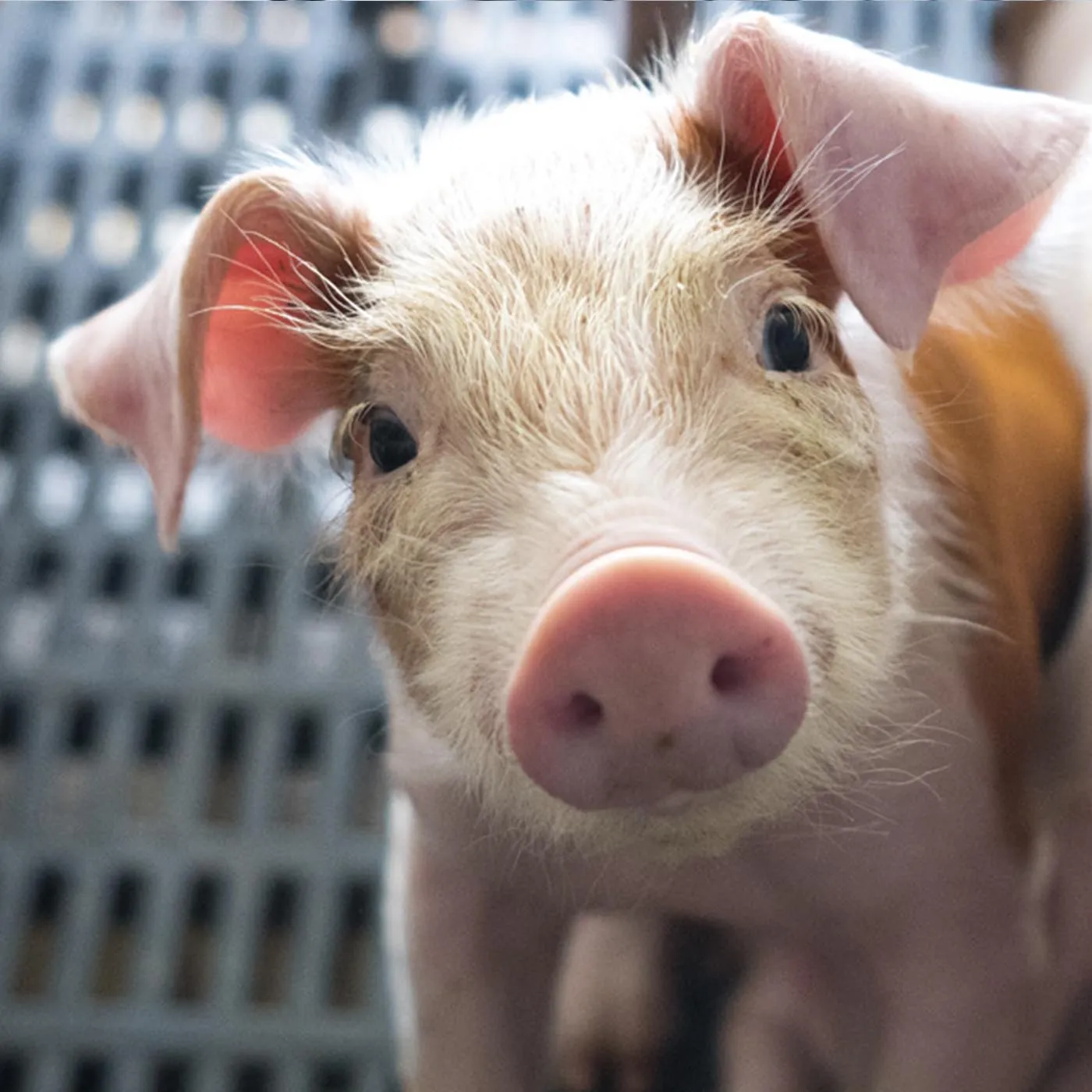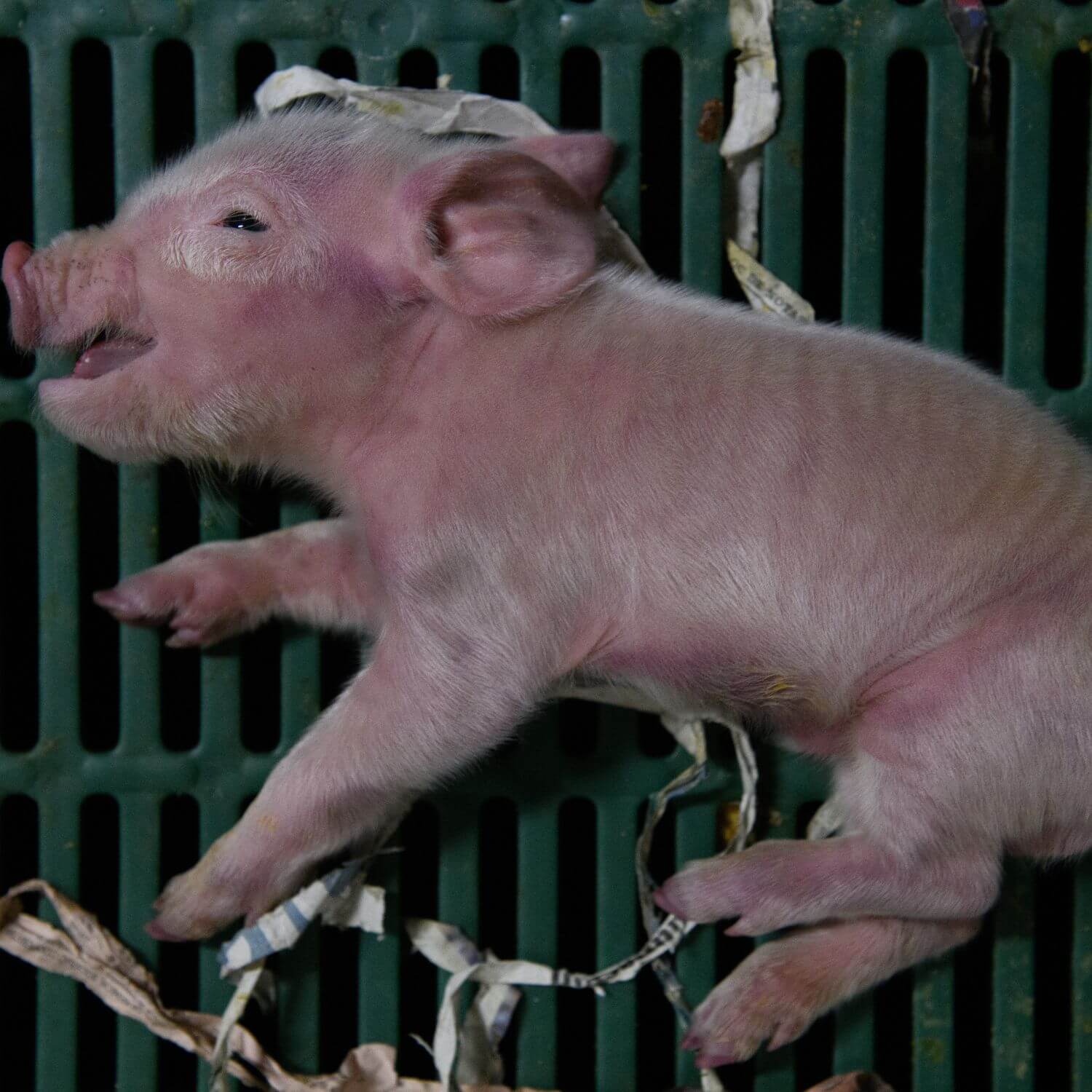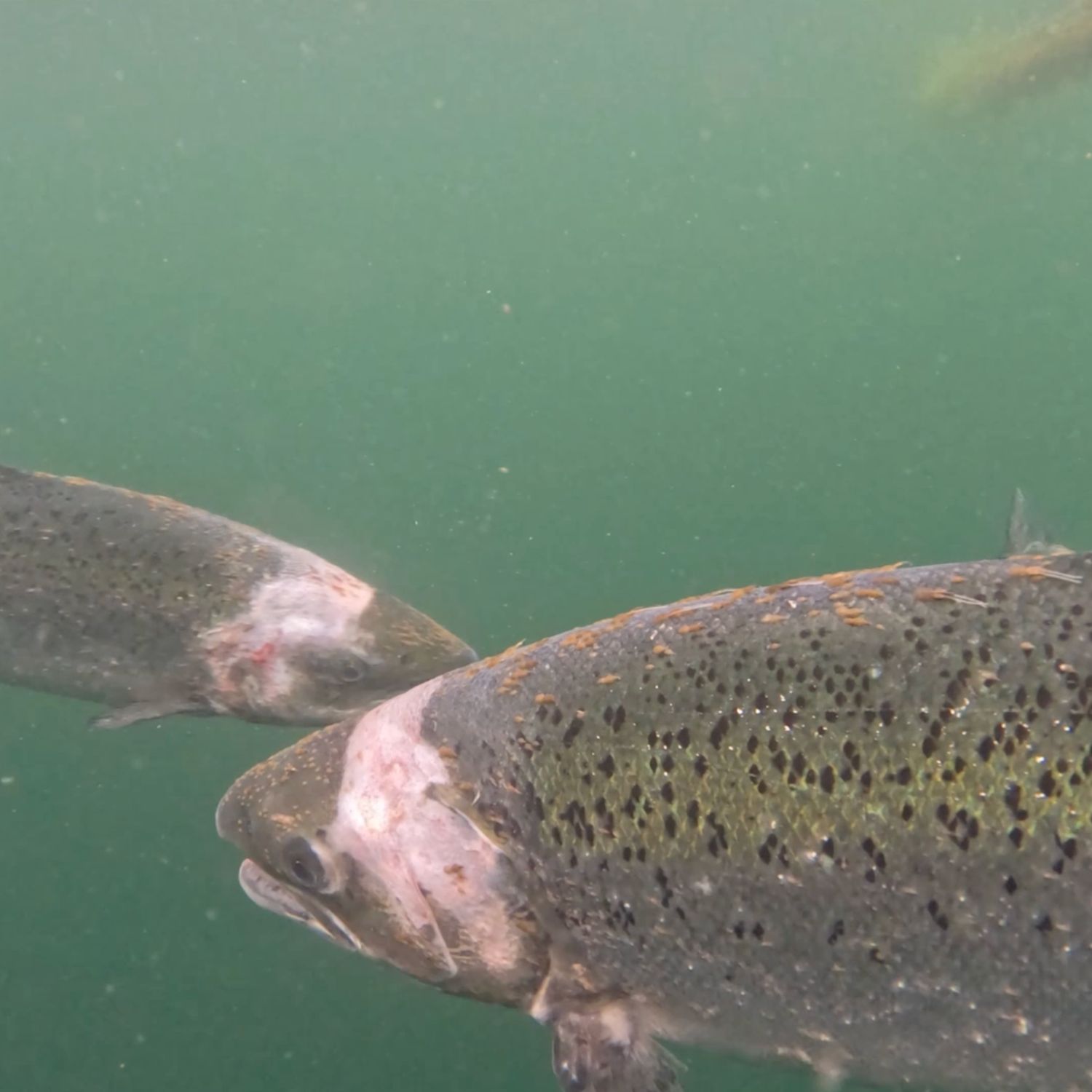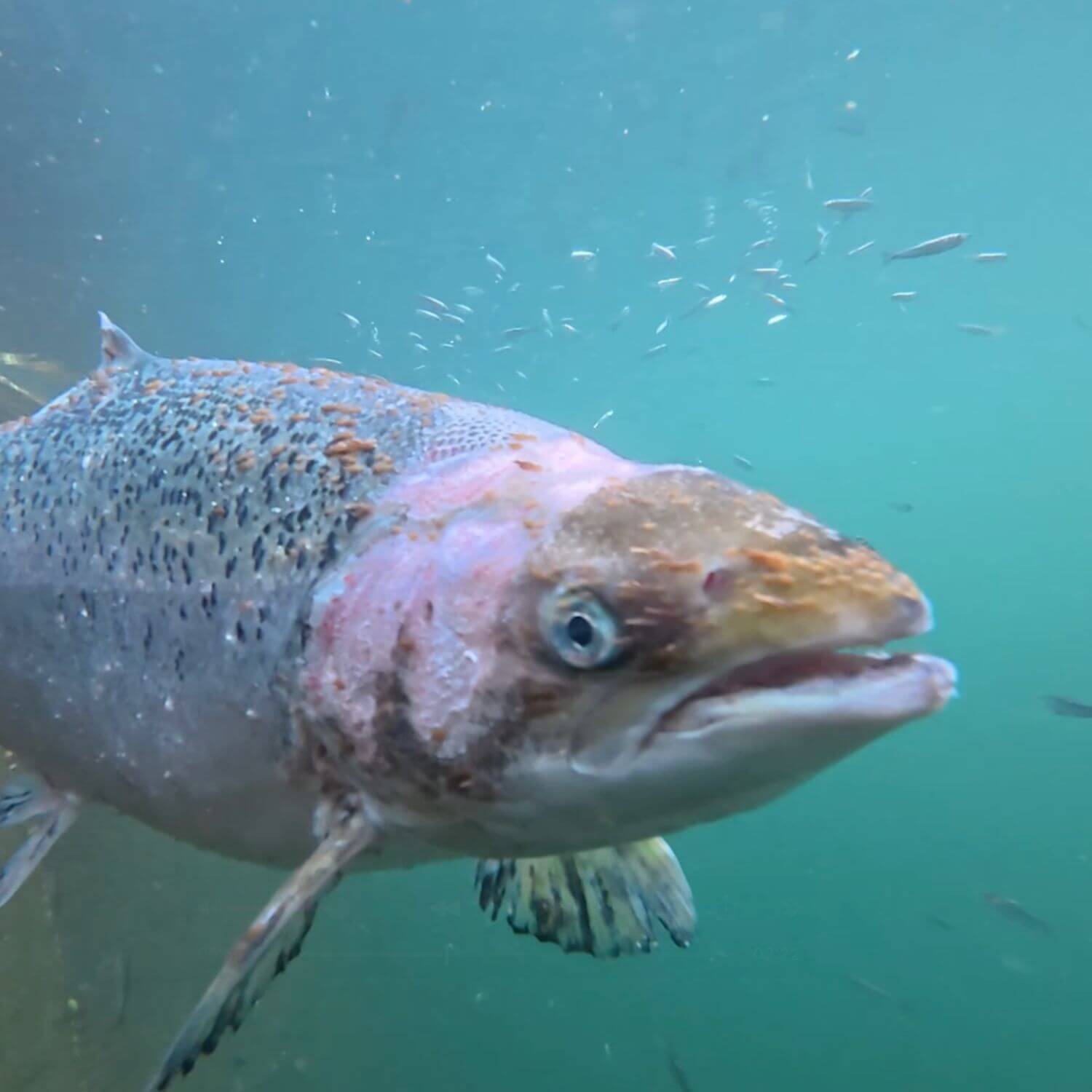Dead on arrival: Goats dragged, beaten, and slaughtered for meat
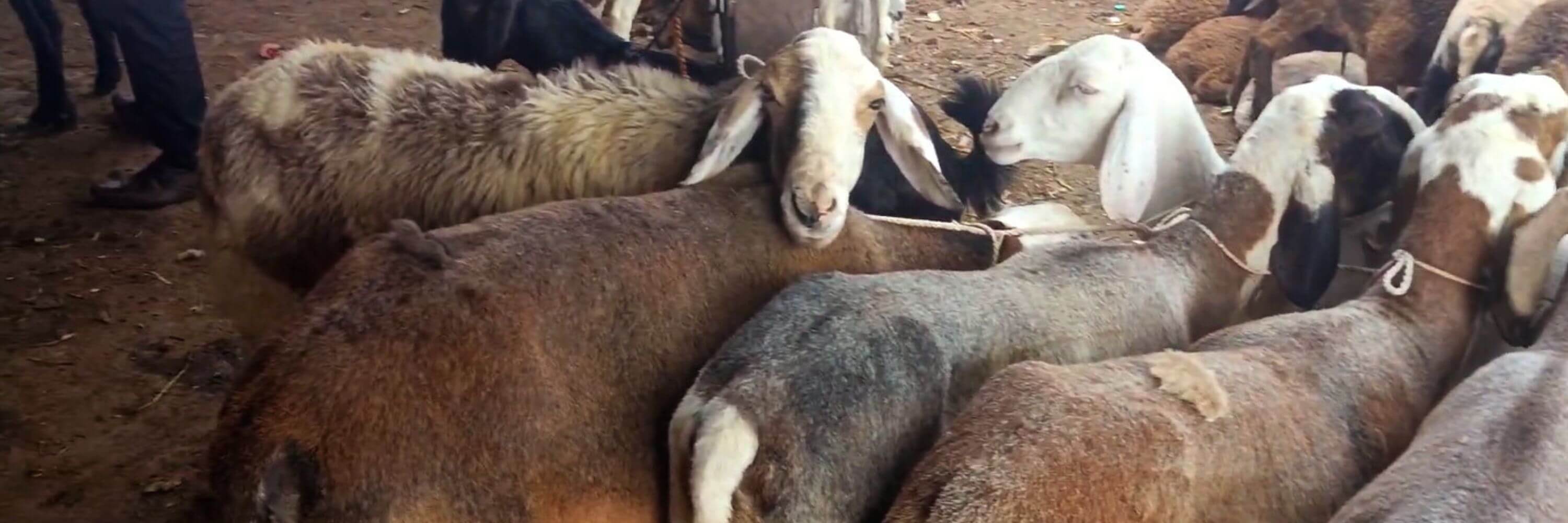
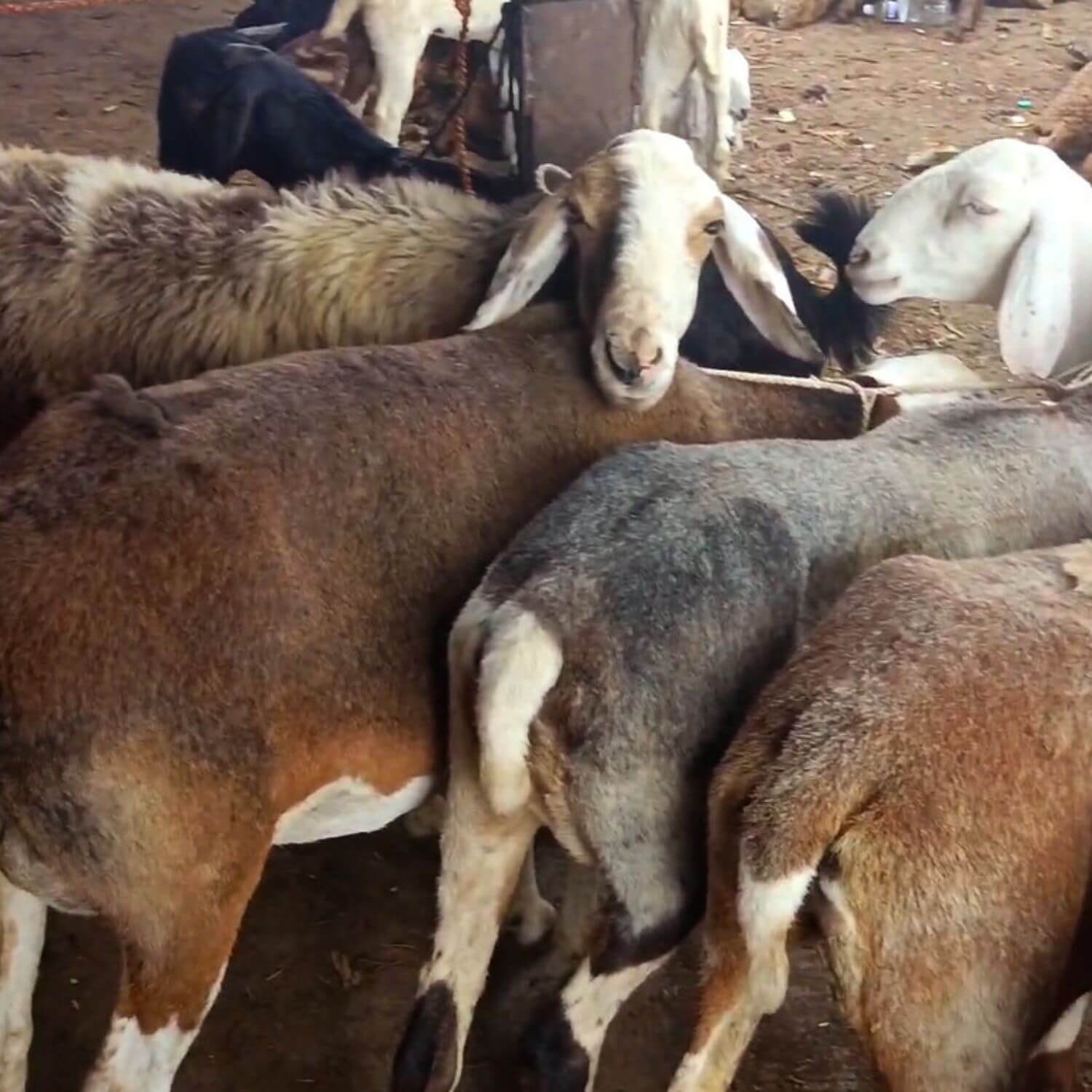
- An Animal Equality undercover investigation has exposed abuse and illegal activity in India’s goat meat industry.
- Goats were beaten, dragged by their legs or ears, or hoisted by both onto transport trucks. Some were dead upon arrival at the markets.
- Slaughter was carried out without stunning, and many animals had their throats cut multiple times. Workers forced their heads to the ground, kneeling on them as they bled out.
- Slaughter took place in illegal facilities, with carcasses left rotting in the sun and heads scattered on the ground.
- Animal Equality has submitted formal recommendations to the Indian Government, and a public petition in India is live.
An investigation by Animal Equality has exposed systemic cruelty and legal violations across India’s goat meat industry.
Investigators visited seven farms, five markets, and four slaughterhouses in Maharashtra, Uttar Pradesh, Jharkhand, and Bihar. At every stage of the animals’ lives, they documented abuse, neglect, and disregard for animal protection laws.
Beaten, dragged, and confined
At farms, goats were kept in cramped cages, where they bit the metal bars in frustration. Others were tied by their necks and horns with short ropes or chains. Many couldn’t fully lift their heads and struggled against the restraints.
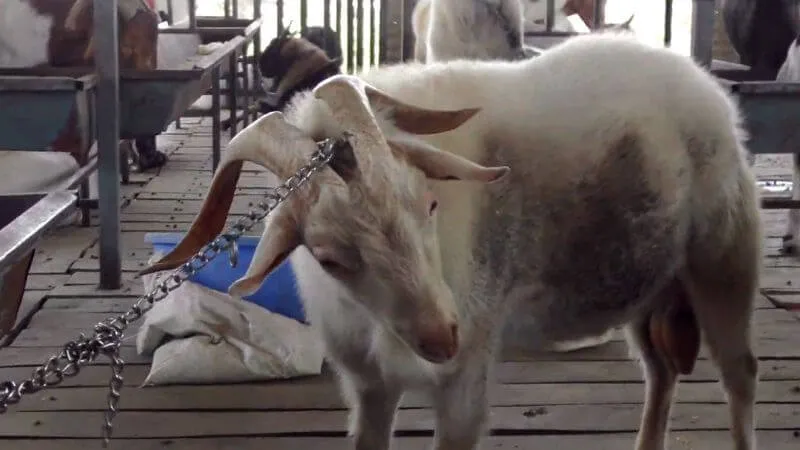
Workers struck goats with sticks, dragged them by their limbs, and hoisted them onto trucks by their legs and ears.
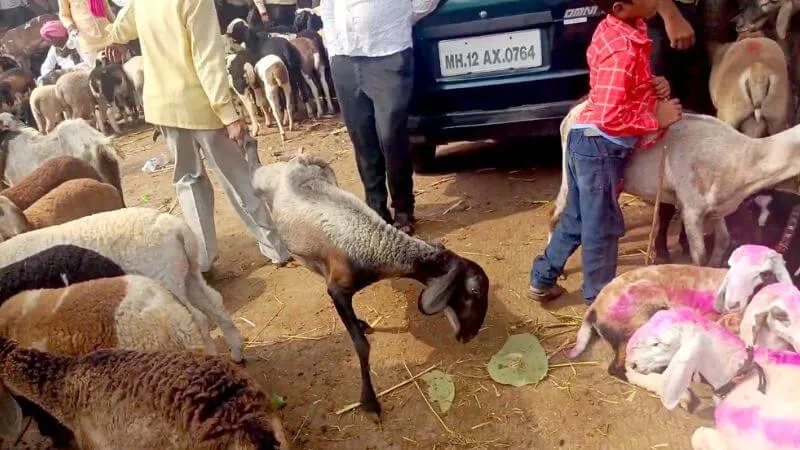
Others shoved or hurled animals onto the vehicles.
Goats were denied food, water, or shelter for hours or even days. Some panted heavily, dehydrated and visibly stressed.
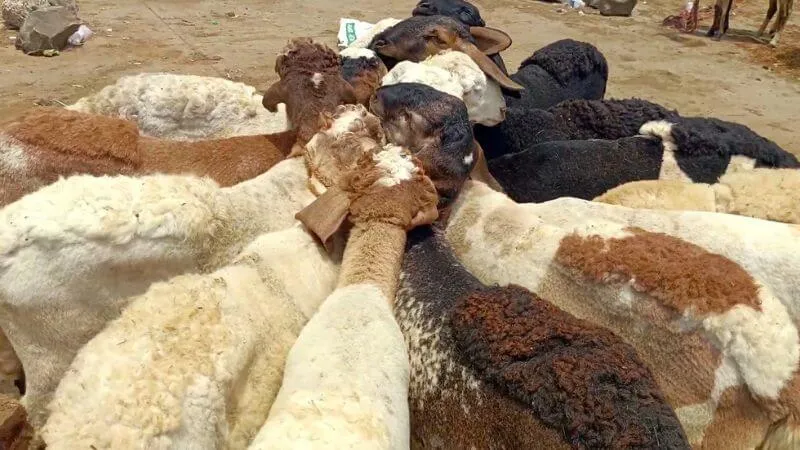
Stuffed into sacks, milked, and dead on arrival
Some goats were illegally stuffed into sacks and transported on motorcycles. Others were crammed into trucks so tightly their limbs protruded from the vehicles.
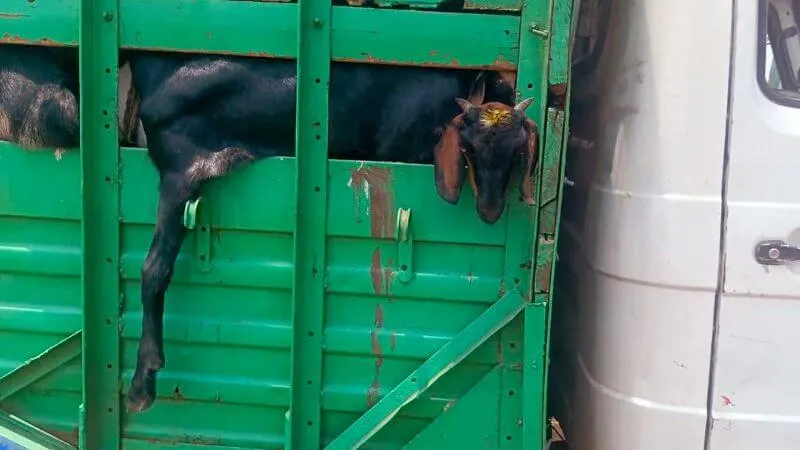
Indian transport laws set minimum space requirements for animals. These rules were routinely ignored.
Several animals died from the harsh conditions before ever making it to the slaughterhouse. Investigators found dead goats dumped in markets. Others arrived with old, untreated injuries.
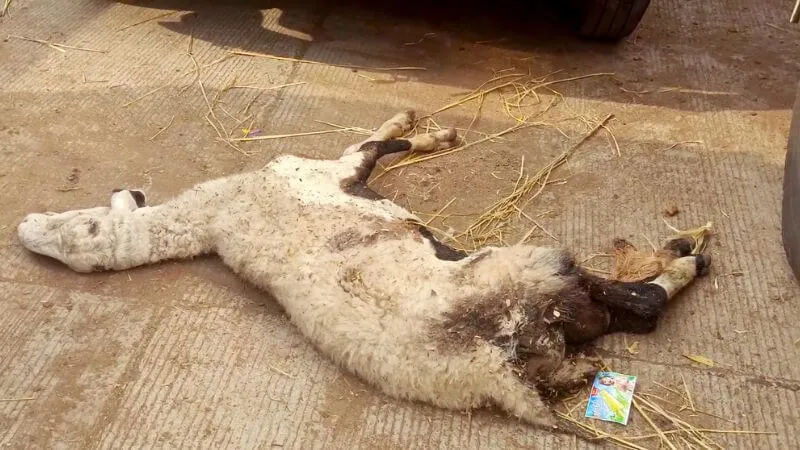
Because goats are used for both dairy and meat, the females were milked one final time before they were sent to slaughter.
Conscious, screaming, and slaughtered
Goats were killed without prior stunning and left fully conscious as their throats were cut. Workers forced animals’ heads to the ground, kneeling on them as they bled and convulsed.
Several survived multiple cuts before dying. Many were nearly decapitated.
After, air was pumped into the goats’ bodies to ease the skin removal process.
Indian law requires animals to be slaughtered in licensed facilities, yet investigators documented killings in illegal meat shops and open markets.
Bodies were left on the ground, exposed to the sun, soaked in blood, and surrounded by waste. Carcasses were hung in full view of live goats. Severed heads lay scattered across the premises.
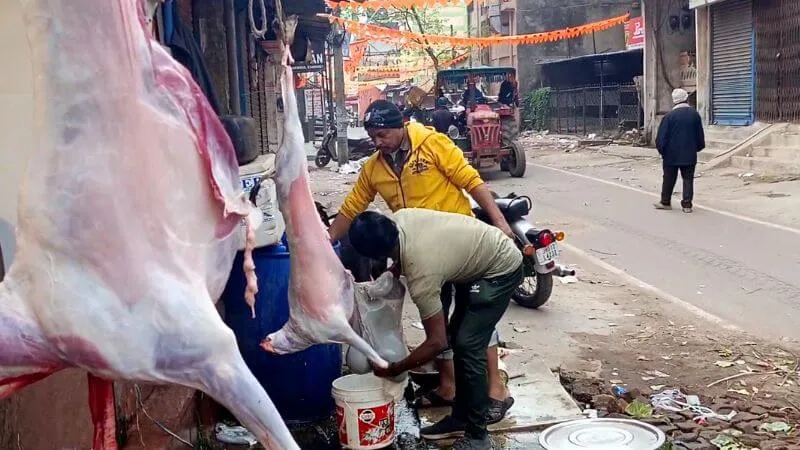
These practices blatantly violate Indian law. The suffering of these animals is not just cruel – —it is illegal and must be stopped.
– Amruta Ubale, Executive Director of Animal Equality in India
India and the UK: Failing animals together
While goats in India endure confinement, neglect, and slaughter, animals in the UK face similar cruelty.
A UK investigation of a Red Tractor-certified farm supplying Tesco found mother pigs confined in metal cages that were barely larger than their bodies, preventing them from turning around or taking more than a step.
The mother pigs engaged in repetitive behaviours such as bar-biting, a sign of psychological distress. One pig, who had attempted to turn inside the cage, became caught beneath the metal bars, suffering deep, bloody wounds as a result.
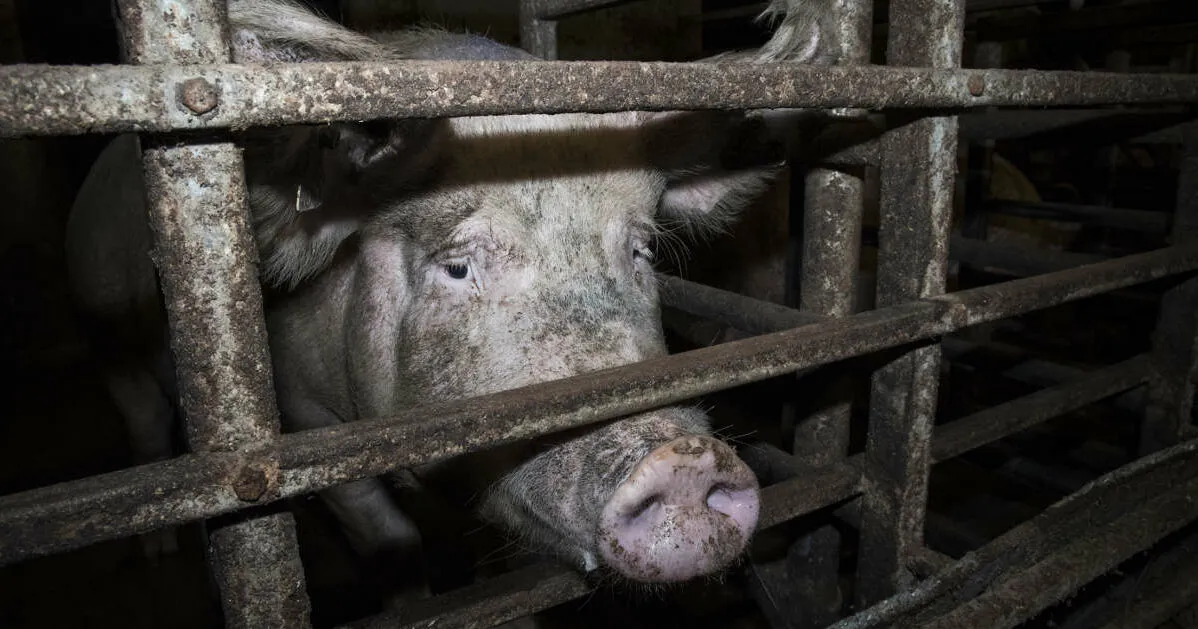
In a separate case, cows at Madox farm tied to Costa Coffee, Londis and British Airways were knowingly left to suffer in prolonged pain. On one occasion, a cow was left in excruciating pain after her unborn calf had died inside of her. Despite a veterinarian who was visiting the farm recommending prompt euthanasia, which would have put the cow out of her misery, the on-site manager opted to delay action. The veterinarian was recorded saying that “this is one place where they’d rather just save the money”. The cow died overnight.
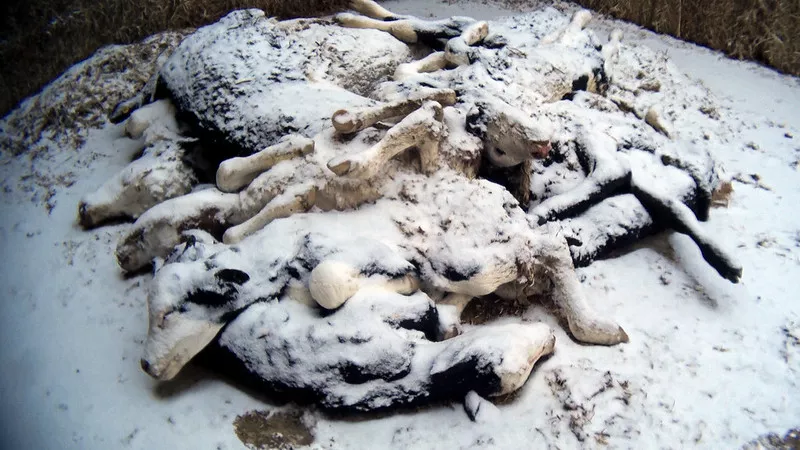
Animal Equality has investigated hundreds of farms and slaughterhouses and found similar cruelty in every region of the world.
From India to the United Kingdom farmed animals are born to suffer. Cruelty is cruelty – no matter where it’s found.
–Sean Thomas, International Director of Investigations
As advocates push for reform in India, Animal Equality is taking action in the UK, urging the government to strengthen animal protection laws and better enforce those already in place:
Demand the Government holds companies responsible for animal accountable – SIGN NOW!
Animal Equality fights back
Animal Equality has called on the Indian Government to take immediate action. It submitted formal recommendations and urged officials to create clear legal protections for goats.
A public petition is now live in India, demanding that the Government implements these reforms.
Meanwhile, in the UK and beyond, we can all create lasting change for animals with one easy step: reject animal cruelty at its source by choosing plant-based foods today.
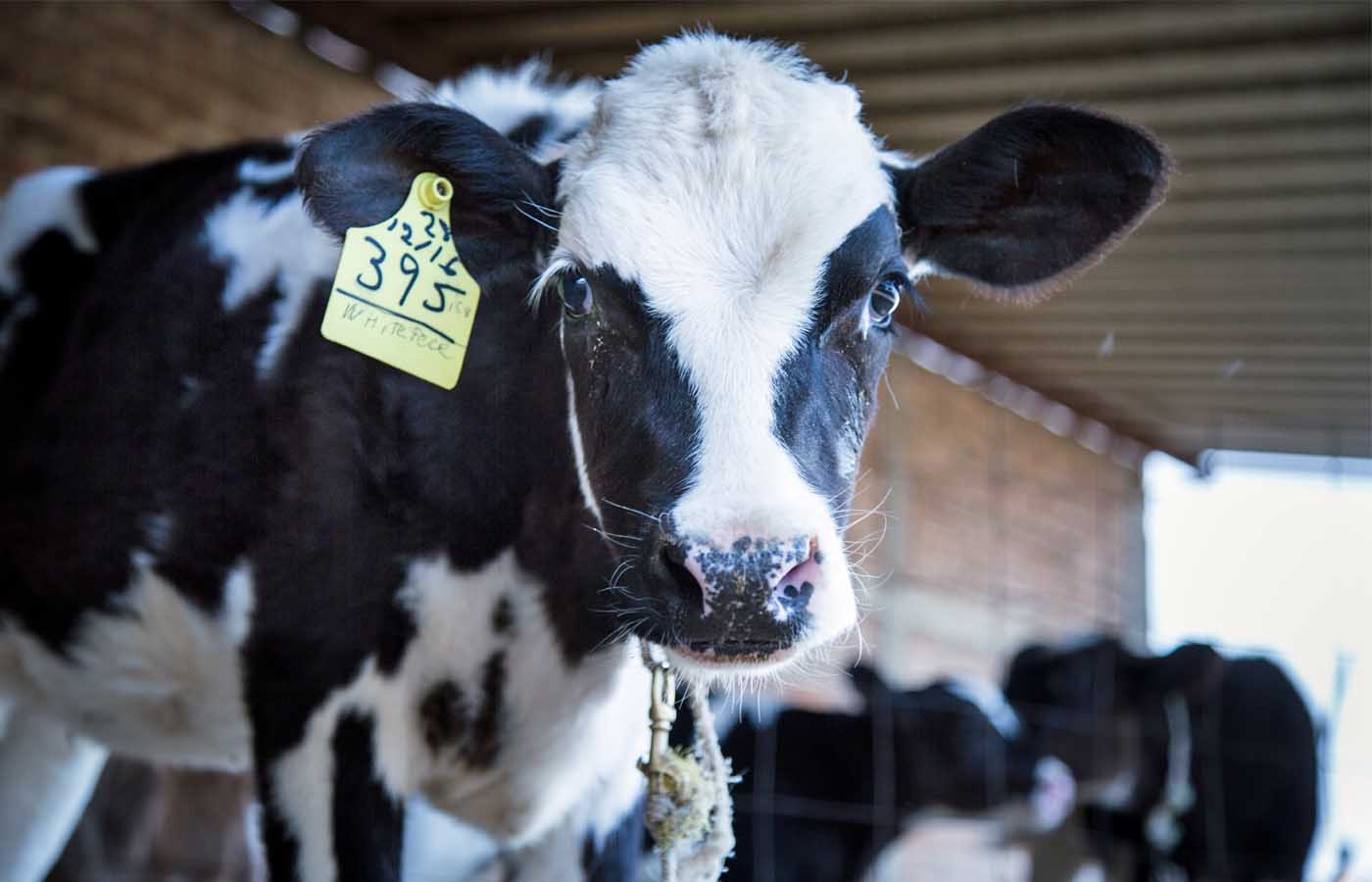
Protect cows and calves
Every day mother cows are separated from their newborn calves, just so milk can appear on the shelves of supermarkets. Protect cows by choosing plant-based dairy alternatives.

